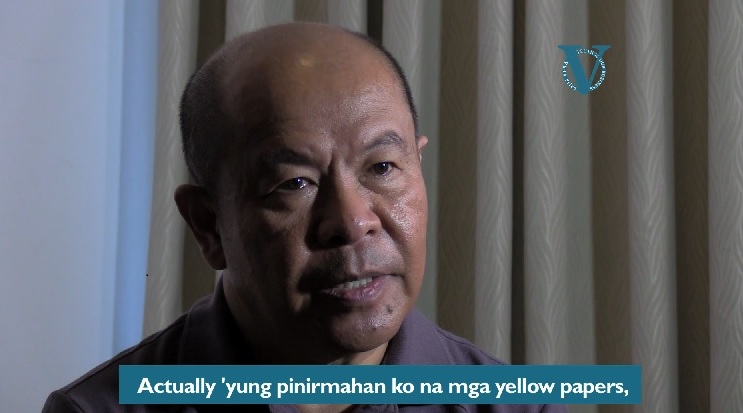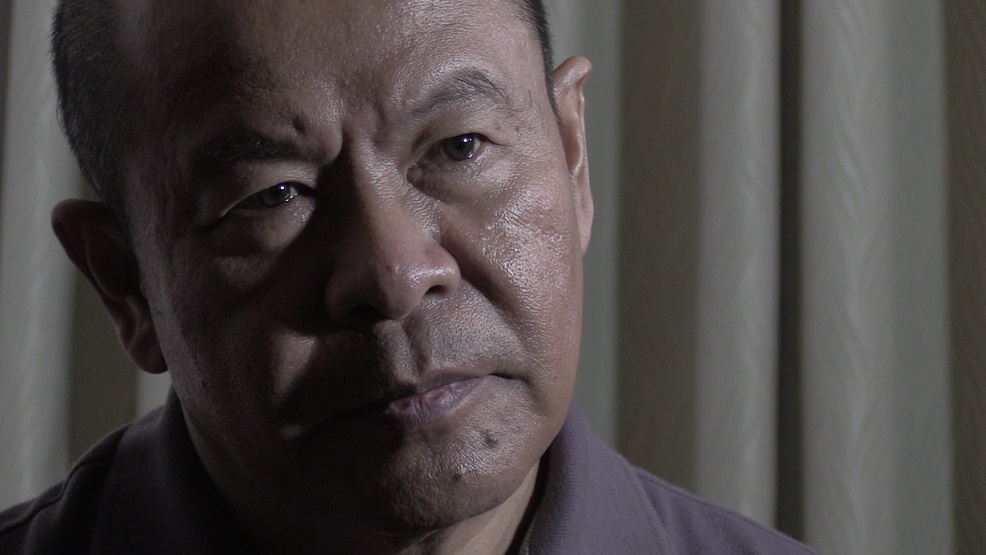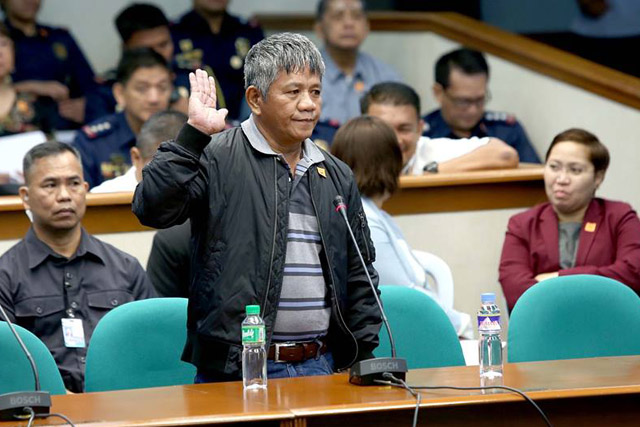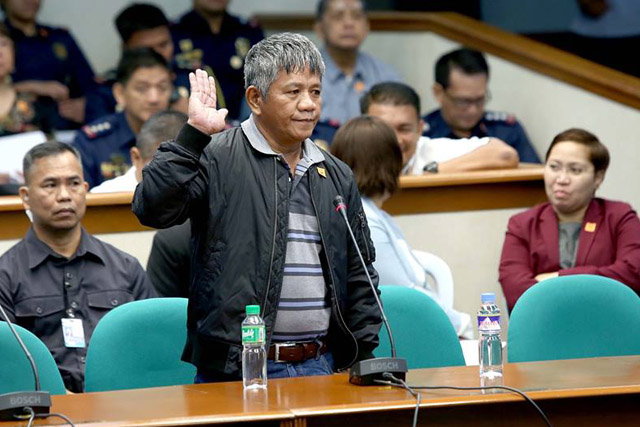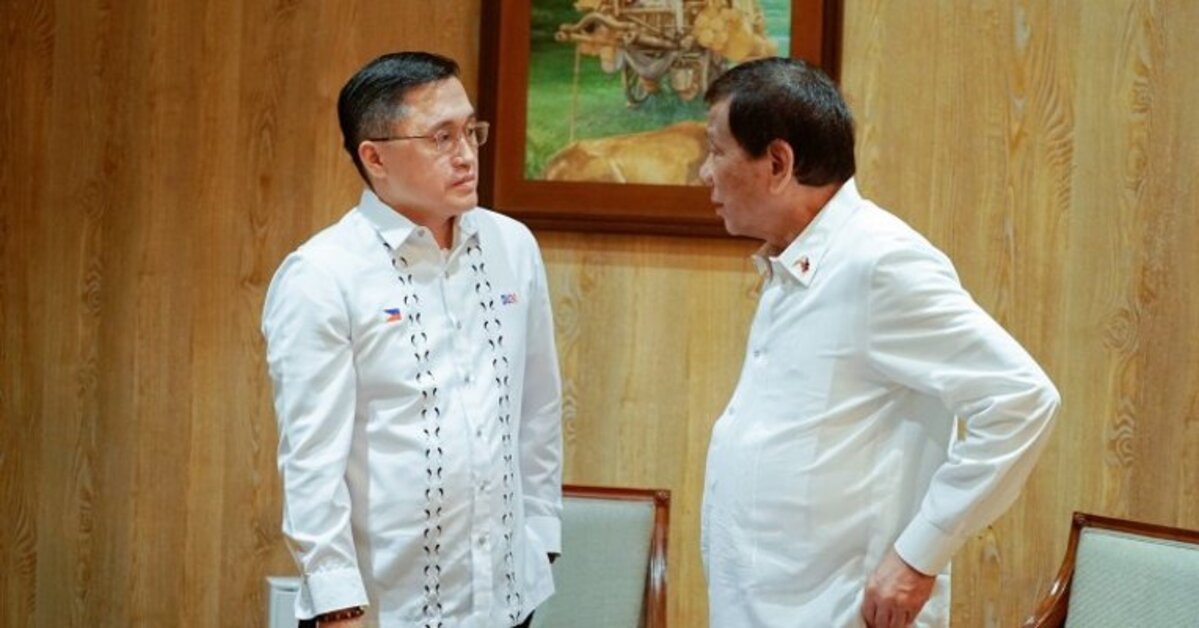The House quad committee (quadcom), which has uncovered gruesome information in its investigation of extrajudicial killings (EJKs), is now into tracing the money trail that financed former president Rodrigo Duterte’s brutal war on drugs.
Quadcom co-chairs Bienvenido “Benny” Abante Jr. and Dan Fernandez said that the mega-panel —composed of the committees on dangerous drugs, public order and safety, human rights, and public accounts—will seek the assistance of the Anti-Money Laundering Council (AMLC) in tracking down the illicit transactions.
Retired police colonel Royina Garma, who was general manager of the Philippine Charity Sweepstakes Office from 2019 to 2022, played a major role in Duterte’s bloody campaign against illegal drugs. She has given information on the rewards system which was patterned after the Davao City drug war template that she helped implement when she was a station commander in one of the police stations there.
It would be helpful for the quadcom to retrieve the interviews given by self-confessed Duterte Death Squad leader Arturo Lascañas and member Edgar Matobato.
Lascañas’ and Matobato’s affidavits on their roles in Duterte’s drug war have already been submitted to the International Criminal Court, which has been investigating the former president’s alleged crimes against humanity.
In VERA Files’ interview with Lascañas in April 2017, the former DDS hitman said he was collecting P68,000 every month from the Davao City government as compensation for being a DDS member.
Needless to say, there is no such item as DDS in the city government’s payroll. He was a “ghost” employee.
What the city government did was come up with 10 to 12 names that were listed as employees with salaries ranging from P5,000 to P7,000 a month.
Lascañas said only two or three names on the list were real people. “The rest is imbento na lang namin na pangalan (We invented the names of the rest). They got some of the names from the yellow pages telephone directory.
Matobato, a former member of the Citizen Armed Forces Geographical Unit in Davao, said he was on the city’s payroll as a member of the Civil Security Unit but worked only to kill individuals who he was told were “criminals.”
Aside from what he got as a “ghost employee,” Lascañas said he also received P50,000 every month from Duterte through Sonny Buenaventura, bringing his collection to P118,000. This was over and above his P38,000 monthly salary as a senior police officer 3 (SPO3) in the Philippine National Police, he said.
The ghost-employees practice was a regular feature during the terms of both father and daughter as Davao City mayor. Rodrigo Duterte’s terms covered from 2001 to 2010, then 2013 to 2016. Sara’s were 2010 to 2013 and 2016 to 2022.
Flagged by COA
VERA Files had reported that the Commission on Audit (COA)had noticed the unusually large number of contractual workers of the Davao City government.
The COA discovered that the salaries of some contractual or job-order employees in Davao City were received by persons “other than those authorized payees,” noticing that the signatures on the receipts were different from those on the payroll.
This is the reason why Duterte hates COA. He had lambasted COA in several of his speeches when he was president, calling it “pure bullshit.”
The hiring of ghost employees was one of the charges in the impeachment complaint filed against Duterte by then-representative Gary Alejano of Magdalo Party-list on March 16, 2017, but it did not prosper in the Duterte-controlled House of Representatives.
The failure of the impeachment complaint was cited by Alejano and former senator Antonio Trillanes IV as the reason why they had to go to the ICC (They were the first to do so.) to make Duterte accountable for his alleged crimes against humanity.
The audit report also formed the basis for the plunder case Trillanes filed against Duterte on May 5, 2016. It is still there doing a Mona Lisa (They just lie there, and they die there.) under a Duterte-appointed ombudsman.
